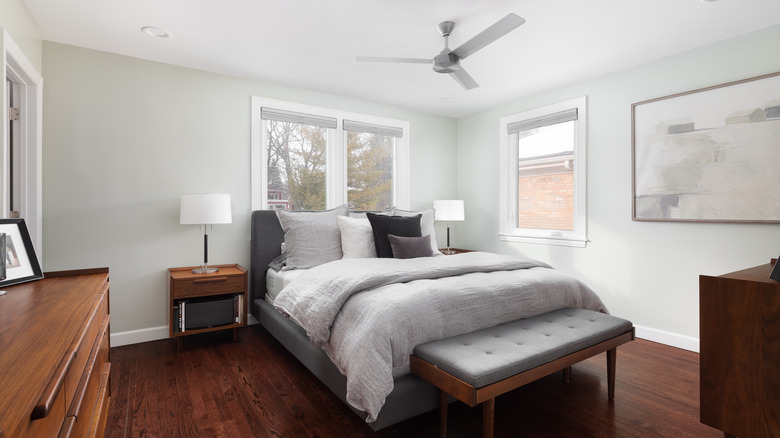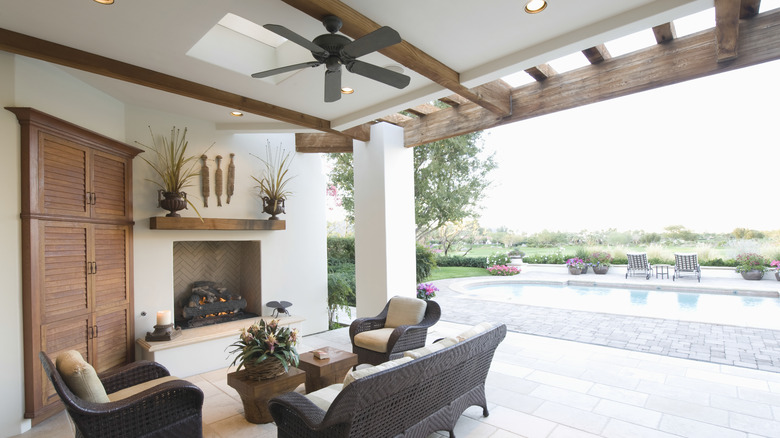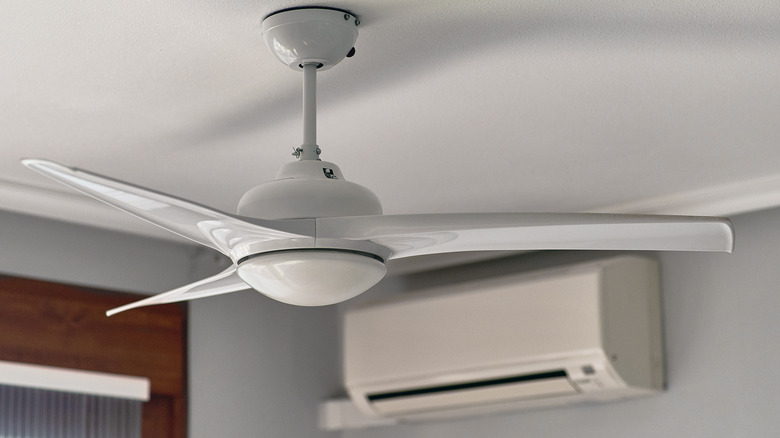Why You Shouldn't Leave Your Ceiling Fan On If You Aren't Home
Going from living in a home with ceiling fans to one without them can be quite jarring, especially in the bedroom. According to Kenner Electrics, we rely on them when sleeping for a few reasons: They cool or warm the air, make the space feel more comfortable, and can emit a soothing sound that some need to fall asleep.
Because of these perks, many keep their ceiling fan spinning all night long. And, once they leave the room in the morning, they usually neglect to turn it off, so the blades continue circulating throughout the day. This cycle could continue for months without the fan ever being switched off.
While this may seem harmless, there are two main reasons why you shouldn't leave your ceiling fan on in an empty room. Further, here's a tip for how to get into the habit of turning off your fan: Treat it like a light. Just as you switch off all your lights when you leave your home, you should do the same with your ceiling fans, per South End Plumbing.
Ceiling fans don't cool the air
Some believe that ceiling fans work to cool the air in a space, which is why many keep them on all day. However, as South Central Power Co. says, fans make us feel cooler by creating a breeze through spinning the air, but they don't actually affect the temperature in a room. Vastola Heating Cooling notes that fans also help evaporate the sweat off of us, which in turn makes us feel less warm. Therefore, if a fan is spinning in an empty room, it's doing nothing, as fans are only useful when there's someone underneath them.
Further, because these fans run on electricity, they can actually work to slightly heat the air. As Forbes points out, the motor that spins the blades does emit a small amount of heat, which is redistributed back into the room. So, while a fan may make you feel colder, it's actually working to make the air just a tiny bit warmer.
Ceiling fans don't save energy (on their own)
Other folks may have been told that using a ceiling fan will automatically save them money on their energy bills. However, this is not the case; in fact, if you continue to use your air conditioner as normal but also turne on the fan, you'd be making your energy bill more costly (only by pennies per hour, per Pick Hvac, but still).
According to Hoffman Electrical and AC, if you want to reduce energy costs while using your ceiling fan, you'll need to do three things: raise the temperature on your thermostat, turn off the air conditioner whenever possible, and turn off the fan when you leave a room. This could save you money because you'll pay less to cool your home with your air conditioner, assuming that your ceiling fan alone can create a comfortable temperature. If you do all this, you could save 15% on your energy bill (before factoring in the cost of the ceiling fan's energy).
Also, if you have a window air conditioner, a ceiling fan can help distribute the cold air in the room — though it won't save you money, per South End Plumbing. And, if your home has warm or cold areas, a fan could make the space's temperature feel more even.


